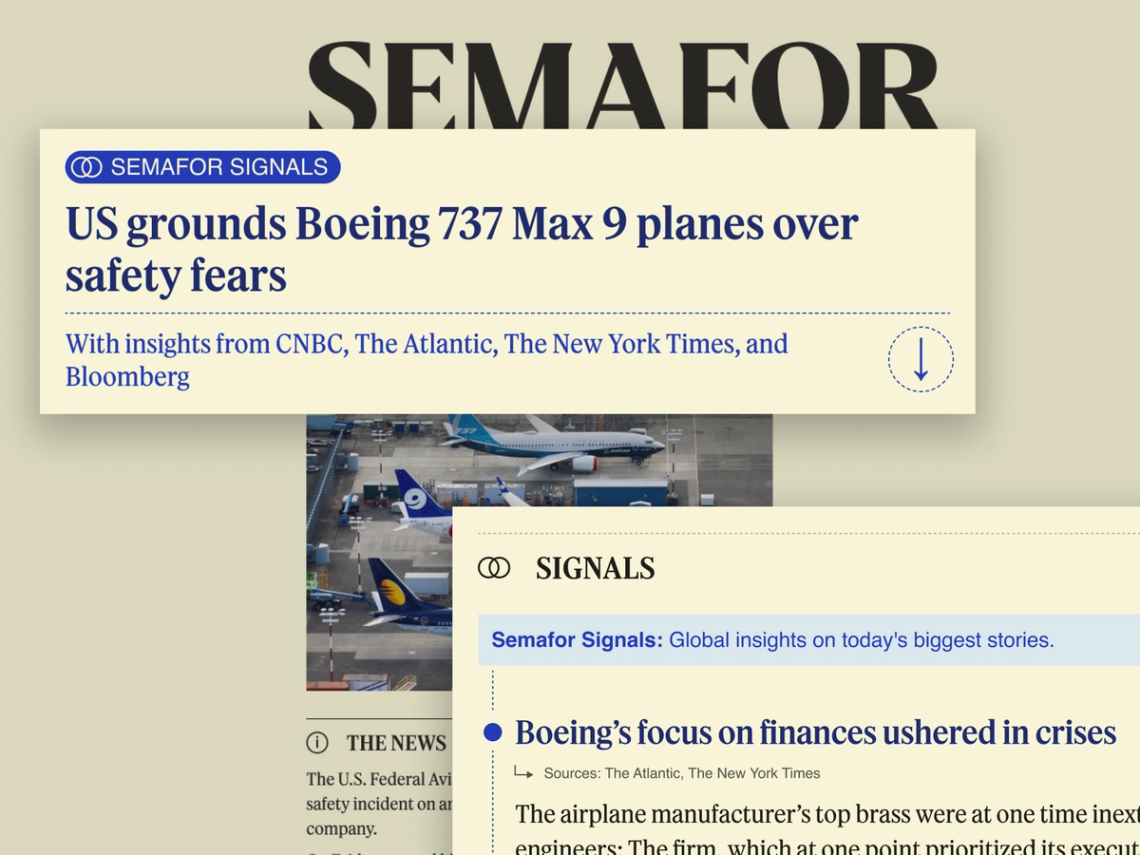THE SCOOP A billionaire roofing family is in talks to buy Air Mail, former Vanity Fair editor Graydon Carter’s effort to drag glossy magazines into the online age. Standard Industries — whose CEOs, two ex-brothers-in-law named David, are stretching a family business into a wide-ranging financial empire — is in talks to acquire the five-year-old media company for about $50 million, people familiar with the matter said. Early investors including TPG and RedBird are selling out, and Carter would remain a shareholder under the terms being discussed, which value Air Mail at about four times its 2019 worth.  Paul Bruinooge/Patrick McMullan via Getty Images Paul Bruinooge/Patrick McMullan via Getty ImagesRepresentatives for Standard Industries and Air Mail declined to comment. LIZ’S VIEW The dire headlines might suggest that media is uninvestable right now, but there’s a lot of money in the world, some of it in unexpected places. Nobody really knows, but by one estimate, family offices manage $6 trillion, more than all hedge funds combined. The largest of them, which invests the $225 billion fortune of the Walmart heirs, would rank among the 100 largest global asset managers if it took outside funds. Most made their money doing one thing very well and are now looking to spread it around, for diversification and for fun. Standard Industries’s co-CEOs, Davids Millstone and Winter, inherited and built industrial concerns into an operating empire with 20,000 employees and $11 billion of revenue. They are, in some ways, classic media investors: The proprietors of a thriving, unglamorous family business with money to burn, they’ve put about $25 million into a handful of media startups with potential future profits but immediate cachet, including Puck, Malcolm Gladwell’s audio publisher Pushkin, and Cabana, which promises readers “a journey through sophistication, obsessive collecting, colors and fabrics.” (Standard Industries also hired a handful of former Carter deputies, prompting the New York Times to ask, “How many former Vanity Fair employees does it take to build a roof?“) The company’s origins trace to GAF, a publicly traded roofing company acquired in a 1983 hostile takeover by corporate raider Samuel Heyman, a Michael Milken-backed player in that decade’s dealmaking. Millstone, 46, and Winter, 47, joined the family business by marrying Heyman’s daughters, and Winter brought his own real-estate family fortune into the bargain. In addition to its roofing, trucking, and chimney-duct operations, Standard also runs a roughly $5 billion portfolio of public stocks and venture-backed startups, which tilts toward industrial companies but also holds its media investments. It’s dabbling in an industry that’s still looking for a workable model. Faustian bargains with social platforms to distribute viral content have failed, and many in the industry are grateful for the deep pockets. But if advertisers are fickle, the rich can be, too. Recent months have shown the weakness of the benevolent-billionaire model of media ownership, with the Washington Post, Time Magazine, and the Los Angeles Times running through the funds and patience of, respectively, Jeff Bezos, Marc Benioff, and Patrick Soon-Shiong. The Emiratis are trying the same play at the Telegraph. Those are all legacy media companies, though, with expensive newsrooms to manage and print-first mindsets to outrun. A new generation of billionaires is betting on a new generation of influencers. And the industry’s current woes go down easier when they come with a standing reservation at the Waverly Inn, Carter’s restaurant-salon in lower Manhattan. Read what Semafor media reporter Max Tani thinks about Air Mail. → |
|








